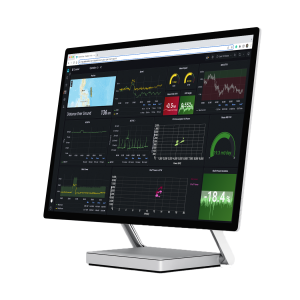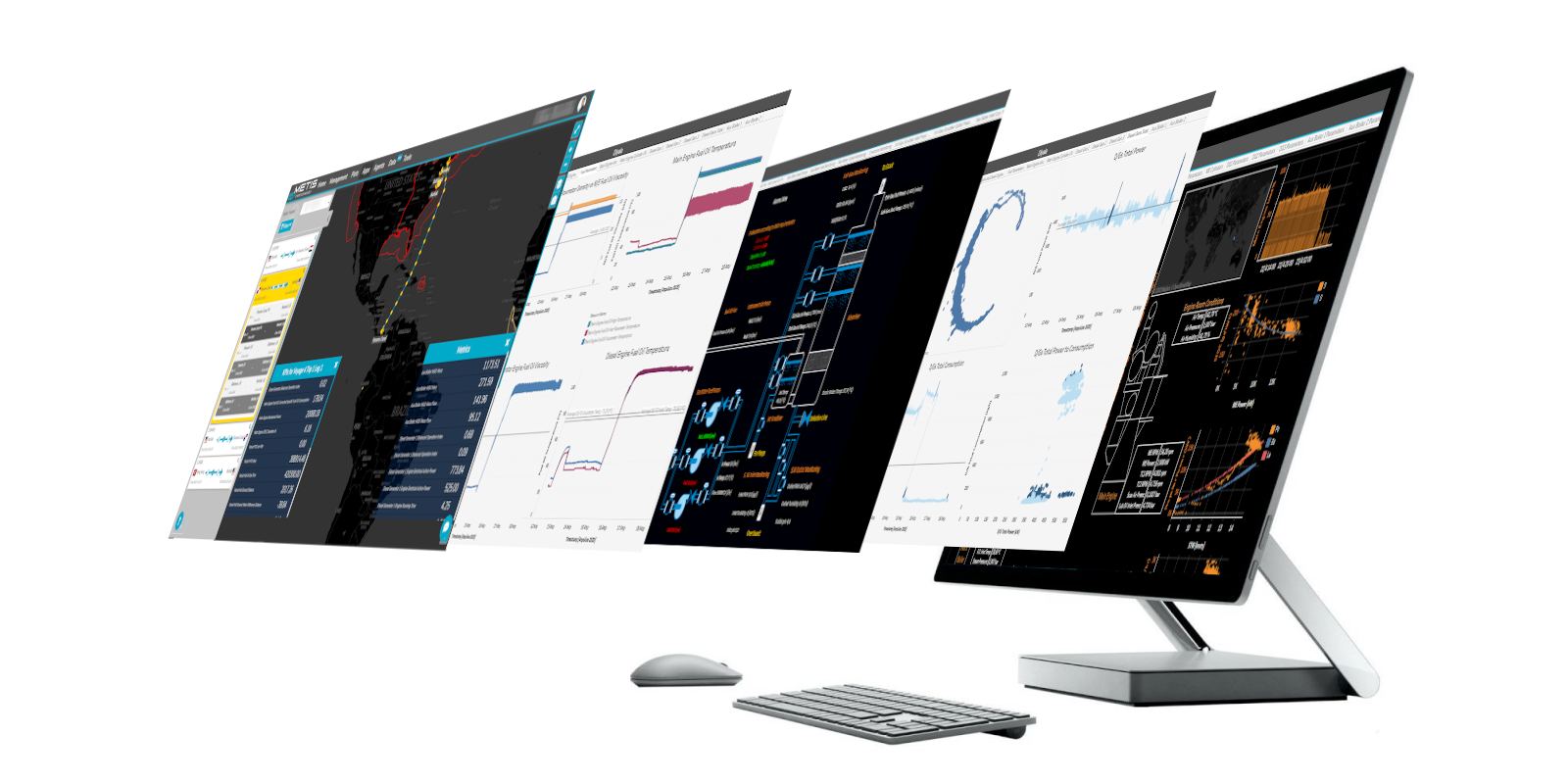In an exclusive interview to SAFETY4SEA, Eleni Polychronopoulou, President and CEO of METIS Cyberspace Technology explains how new technologies can assist industry in succeeding in its journey towards decarbonization, highlighting the importance of data reporting. In that regard, automated processes are essential as well as advanced solutions that will support industry’s digital transformation.
However, not every solution fits to all but as Eleni Polychronopoulou notes, it is important first to acknowledge that there are many solutions and then to be open to collaborate and work as a team with different stakeholders, contributing to a common goal. Speaking as a proud member of WISTA, Eleni Polychronopoulou encourages maritime organizations to support equality and diversity to break the barriers and bring innovation to the sector.

SAFETY4EA: Tell us a few words about the METIS Cyberspace Technology. How can data and real-time information significantly improve ship operations?
Eleni Polychronopoulou: METIS will celebrate its seventh anniversary this year and remains a pioneer in developing and implementing AI-based analytics and machine learning as a way of helping owners to optimise fleet performance. We believe that the METIS platform offers the most comprehensive solution to support the digital transformation of shipping companies. It has been developed to help owners and managers plan for, execute and report on optimised voyage operations based on automated data acquisition, real-time performance monitoring and predictive intelligent analytics. It covers the needs of different departments, roles and levels of management at a maritime company – on board ship and on shore. One thing which sets METIS apart is the way it creates a digital twin of each vessel in the cloud, which allows root cause analysis and predictive analytics services to be vessel specific – so that even the characteristics of older ships can be factored into performance optimisation. Its analytics can assist in compiling charter parties with the best-possible terms; understanding and resolving technical issues; optimising speed and identifying the most efficient route based on weather conditions; and monitoring and documenting greenhouse gas (GHG) emissions. METIS solutions have been shown as helping owners to reduce fuel consumption by up to 10% and to support an annual improvement in a vessel’s Carbon Intensity Indicator (CII) rating of up to 12%. We currently have 47 clients with over 350 ships signed up to our platform. These numbers will increase significantly in the next few months as we recently signed an agreement for two large projects – one of them in Greece – that we will be able to announce soon.
S4S: From your perspective, what are the key challenges that the maritime industry is currently facing?
E.P.: Clearly, these are challenging times for shipping in terms of geopolitical events but the reduction of greenhouse gas emissions and the greenhouse effect they produce is probably the greatest challenge currently facing the global shipping community. Digitalisation can assist vessels to achieve their optimum performance and minimise their emissions. Automating data acquisition avoids errors and relieves shipboard personnel of a time-consuming burden, as well as speeding up the flow of information. In the meantime, predictive analytics can be used to help owners make decisions to match their goals. The goals set for ship decarbonisation have driven stricter reporting requirements. While automated processes are not mandatory, they are surely necessary if shipping is to meet its targets, especially because owners and managers need insights into the exact behaviour of every vessel. Each vessel has its own characteristics, meaning that meeting emissions-reduction goals while also maximising commercial gains demands ship-specific strategies.
S4S: Do you have any new projects/ plans that you would like to share with industry stakeholders?
E.P.: This has been an exceptional year for METIS as a collaboration partner working towards shipping’s goals on digitalisation. We recently signed a formal agreement to work with the Agency for Science, Technology and Research (A*STAR) in Singapore and MTI Co. Ltd. Singapore Branch and to advance the use of AI for the predictive modelling of ship emissions and carbon intensity indicator evaluation. With every ship needing to report efficiency and emissions under the IMO’s CII scheme, owners, managers and charterers are in a new era of accountability. The first target of this initiative is to make the relationship between fuel consumption/emissions and the CII rating more transparent by taking full account the ship profile. Subsequently, we aim to develop a simulation platform to model future voyages and evaluate the real-time CII compliance status of a ship. METIS also recently signed a formal agreement with DTN to integrate actionable weather-based decision-making capabilities into the METIS Augmented Routing Optimization module. We see this as a further demonstration of the way AI-based analytics can deliver measurable performance gains for individual ships, because optimised weather routing finds the most efficient route available for safe navigation based on the characteristics of each vessel. This kind of functionality just wasn’t available before, where the officer of the watch is updated with actionable insights throughout the voyage and can base decisions on meeting the ETA, speed and fuel consumption targets or fulfilling emissions requirements. On shore, managers can calculate and recalculate routes to optimise performance – even at the level of charter party expectations.
S4S: What do you see as the defining ESG trends driving maritime toward the future?
E.P.: The adoption of new sustainable technologies is becoming increasingly important for investment. Companies are now rated based on ESG criteria, and I believe that a maritime company’s ability to operate, raise capital and develop will shortly be directly intertwined with its ESG rating report. Advances made in technology have in some senses brought the land and the sea together in ways that have previously been unimaginable. However, if we are in a transitional phase where maritime technology is concerned, the ESG challenge facing us is huge and, while large corporations can sometimes absorb or offset the associated risks, this is not possible for most companies. Ship owners are understandably hesitant over which strategy to adopt, while marine equipment manufacturers are extremely cautious over their R&D spend. And just as there are no integrated or specific technologies that provide solutions to all the problems we face, there won’t be a ‘one size fits all’ solution in political or commercial terms. But this is not the same thing as saying there are no solutions at all. Rather, the only way forward is through collaboration and – whether or not it suits our outlook – for us all to work as a team contributing to a common goal.

S4S: What role do you think diversity plays in pushing innovation in the technology sector? How can we encourage more women to join the digital and high-tech area?
E.P.: Speaking as a proud member of WISTA, I think it is worth acknowledging that good things are already happening. I hope we’re at the beginning of the end of the ‘all male’ panel at shipping events for example, and I very much applaud the work of the IMO-WISTA Maritime Speakers Bureau initiative. Female leaders are becoming more prominent across all aspects of our industry, and that extends to the research and engineering sectors as well as ship ownership and management. In Greece alone, we have women as presidents of the Union of Greek Shipowners and of HELMEPA who have been selected on merit and because they are capable, knowledgeable, experienced leaders in an international environment. And from my own experience, I can give examples of the amazing women that I work with who are making a huge contribution in knowledge, insights and abilities to the maritime industries, including Efi Tsolaki, Chief Scientific Officer at ERMA FIRST, and Angeliki Dimitrokalli, Data Analysis Team Leader as well as Aspa Varouhaki, Head of Customer Success here at METIS. These women are experts in their fields who have been recruited on the basis of equal opportunity but also for what they have to offer. Ensuring equality requires sensitivity to the circumstances of all our people – whether that relates to their parenting commitments, or supporting them in other areas so that barriers do not stand in the way of the diversity that we already know breeds innovation.
The views presented are only those of the author and do not necessarily reflect those of SAFETY4SEA and are for information sharing and discussion purposes only.






























































